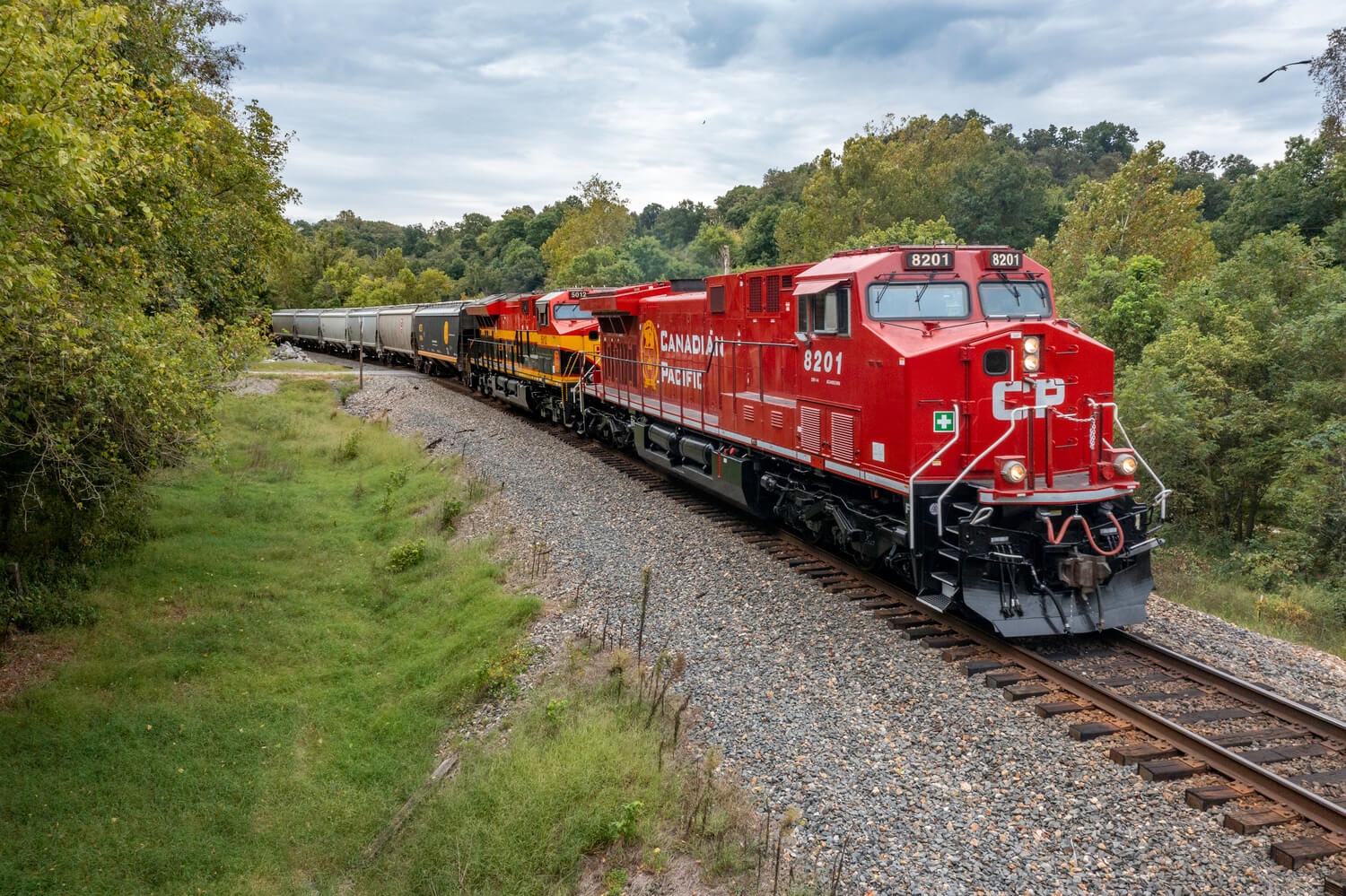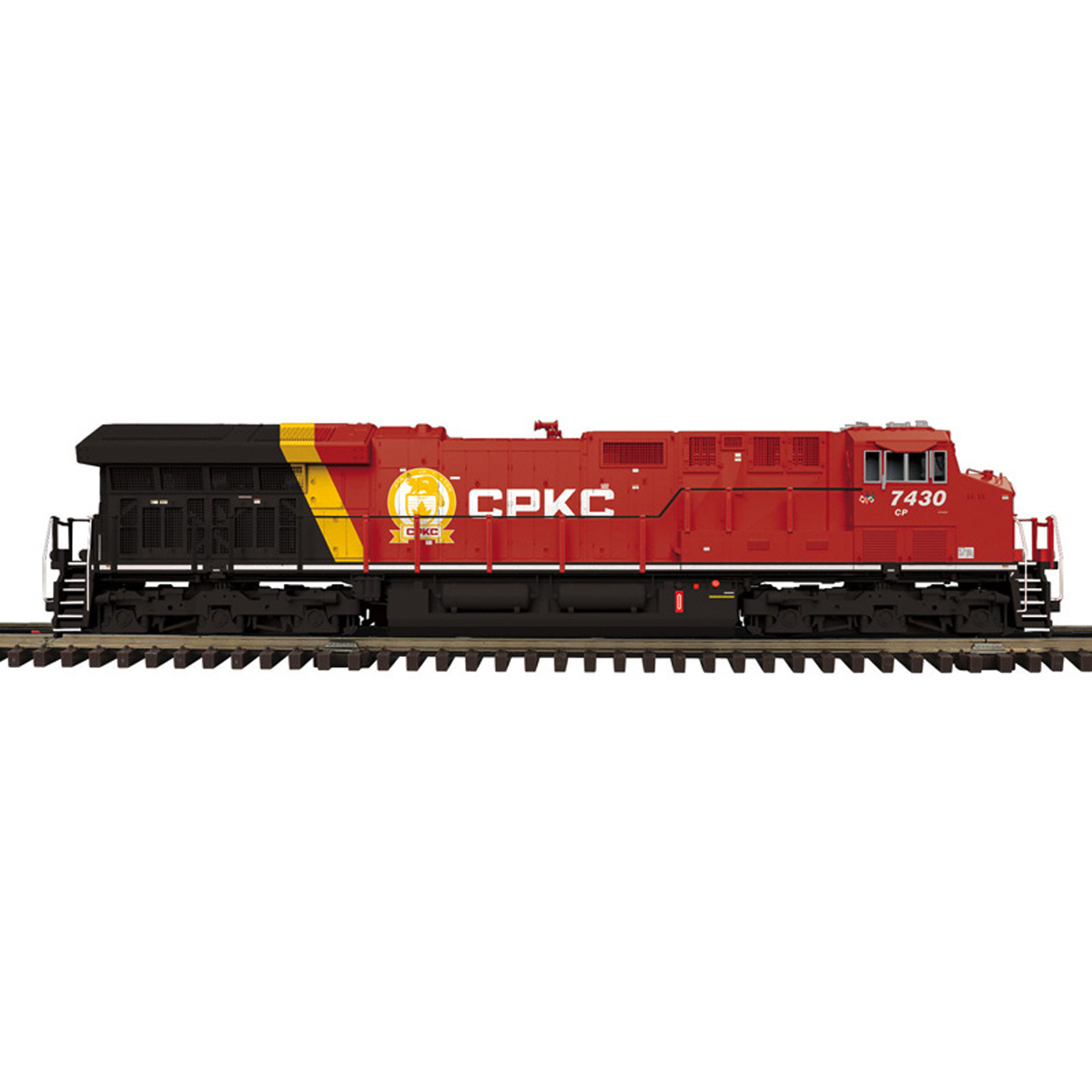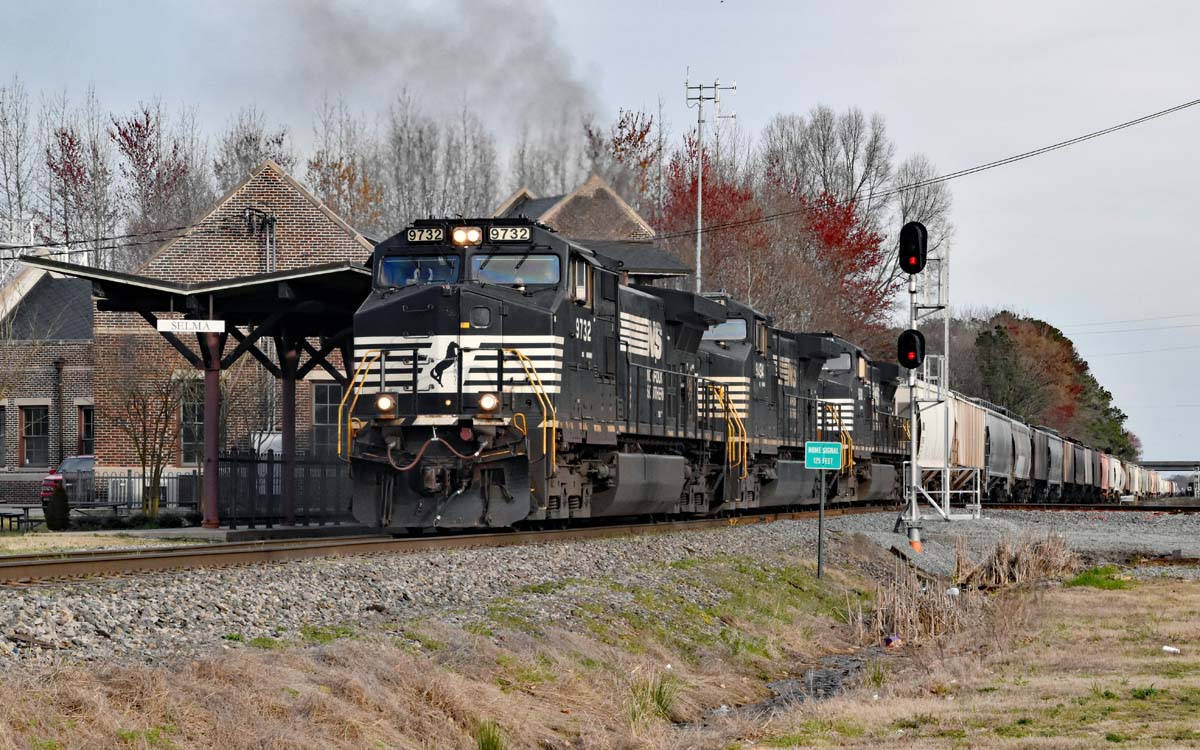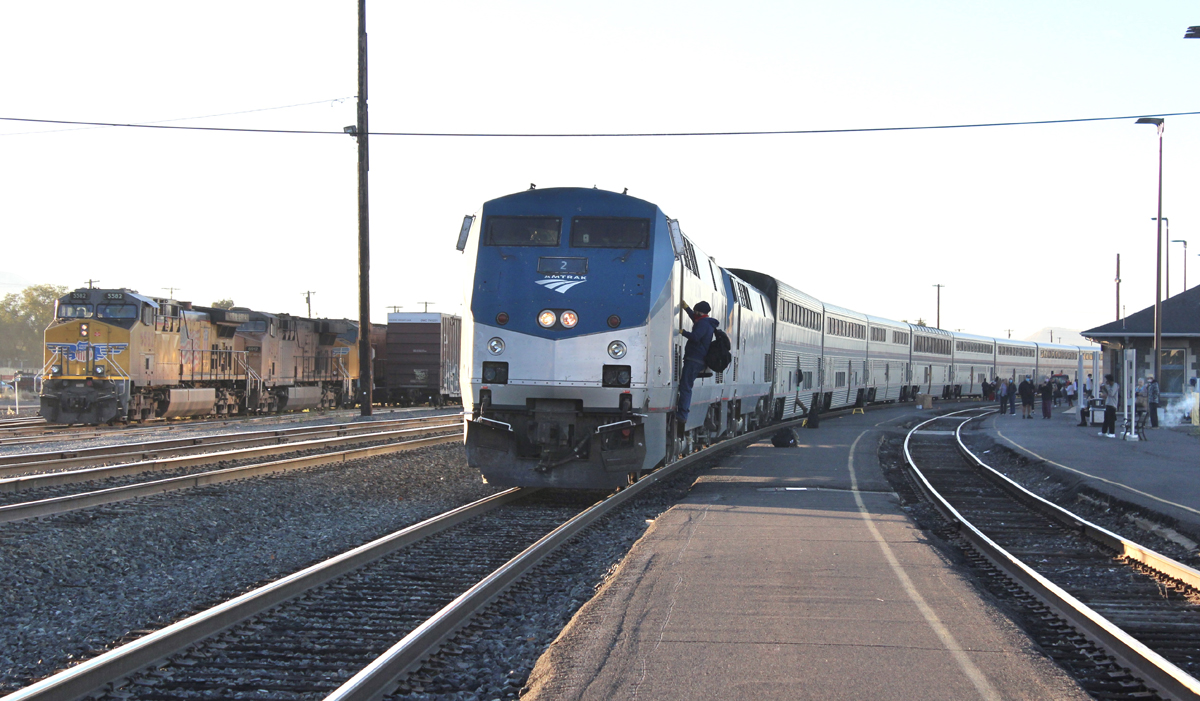
WASHINGTON — Canadian Pacific Kansas City can send Midwestern grain to export at the ports of Houston and Galveston via haulage rights over Union Pacific south of Beaumont, Texas, the Surface Transportation Board said today.
Union Pacific in 2023 had sought to block CPKC’s use of Kansas City Southern’s so-called South End haulage rights, which were granted to preserve competition as part of UP’s 1988 acquisition of the Missouri-Kansas-Texas Railway.
KCS had only sporadically used the haulage rights. The 2023 CP-KCS merger, however, prompted shipper interest in using CPKC single-line service from the Upper Midwest to reach export markets via Houston and Galveston.
When UP sought to block CPKC grain shipments from North Dakota to the Gulf Coast ports, CPKC on Aug. 1, 2023 asked federal regulators to enforce the haulage rights it says the Interstate Commerce Commission made part of its approval of the UP-MKT merger [see “CPKC asks regulators …,” Trains News Wire, Aug. 3, 2023].
The haulage and trackage rights agreement preserved the pre-merger options shippers had to send grain from the Midwest to the Gulf Coast via Kansas City and the independent Katy.
But UP contended that neither grain originated on CPKC locations north or east of Kansas City nor Class I traffic interchanged to CPKC at Kansas City are covered under the South End agreements. This includes interchange between CP and KCS at Kansas City, UP argued.
“The Board’s ruling today underscores our commitment to competition within the rail industry,” STB Chairman Patrick Fuchs said in a statement. “By enforcing this merger condition and affirming the continued use of these haulage rights, the Board preserves routing options for agricultural shippers, helping support a strong supply chain and market access for American exports.”
The STB’s decision upheld the haulage rights that were privately negotiated and then made a condition of the UP-MKT merger.
The board also determined that the term “interchange” in the 1988 agreement includes the exchange of traffic between rail carriers under common control, and therefore that KCSR can continue to move traffic originating on CP and other carriers that are now part of the CPKC corporate family.
Although the board’s decision was unanimous, board member Robert Primus issued a separate, dissenting opinion. Primus said he agreed that the 1988 UP-KCS term sheet regarding the South End haulage and trackage rights should be enforced, but he disagreed with the board’s rationale regarding shipments originating on the former CP in North Dakota.
“During the Board’s consideration of the merger, CP and KCSR did themselves no favors by arguing that the merger would eliminate their Kansas City interchange and result in ‘single-line service,’ a position now seemingly at odds with the outcome KCSR desires in this case,” Primus wrote.














Not my line of expertise so my question is, could the Gulf support a new grain terminal? CPKC is turning into a grain conveyor belt for loads from Canada and the Midwest to Mexico and the Gulf. Is it enough to rationalize building a new port?